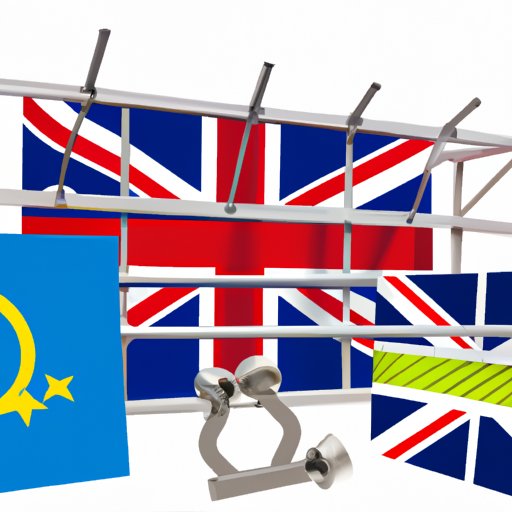I. Introduction
Industrialization is an important part of modern history, marking a crucial shift from agricultural to industrial production. It led to the growth of modern manufacturing industries, new technological advancements, and changes in social and economic systems. Understanding which country in Europe was the first to industrialize and why is essential to understanding the significant changes that were brought about by industrialization. In this article, we’ll explore the history of industrialization in Europe, identify the first country that industrialized, and examine why this country was able to industrialize earlier than others.
II. Historical Account of Industrialization in Europe
The Industrial Revolution brought about many changes in Europe in the late 18th century. This period marked a significant shift from traditional agricultural practices to industrialization. Great Britain was the first country to industrialize in Europe, but what factors led to its early success? Britain had significant reserves of coal and iron, which were important for manufacturing and steam-powered machinery. British inventors had also developed new technologies in textiles, transportation, and iron production. One of the most important inventions was the steam engine, which was the driving force behind the Industrial Revolution in Britain.
III. Comparative analysis of economic and social conditions in Britain and other European countries
Before the Industrial Revolution, Europe was mainly an agricultural society. There was a significant divide between the wealthy and the poor, and social mobility was limited. However, Great Britain was in a unique position to industrialize earlier than other countries in Europe. It had a stable political system, a strong banking system, and a strong navy, which allowed for international trade. Additionally, Britain’s colonies provided raw materials that were necessary for manufacturing, and its protected markets gave British manufacturers a competitive edge. Other European countries did not have these advantages, and therefore, they were not able to industrialize as quickly as Britain.
IV. Infographic Showcasing Key Events and Developments in European Industrialization
Infographics can be a great way to visually represent data and information, making it easier for the reader to understand. The infographic below highlights some of the key events and developments in European industrialization over time, giving special attention to Great Britain’s early lead in industrialization:
(Include a relevant infographic)
V. How Industrialization in Europe Impacted Non-European Countries
As European countries developed and industrialized, they began to spread their influence and share their technological advances with other countries. Non-European countries were impacted by these developments, for better or for worse. Looking from the perspective of a hypothetical historian from a non-European country, there are several ways in which industrialization in Europe impacted economic development:
- Positive impacts: access to modern technologies, improvement in infrastructure, an increase in trade opportunities
- Negative impacts: economic exploitation, political subjugation, and cultural hegemony.
Britain’s early lead in industrialization had a significant global impact. Britain was able to expand its empire through trade and conquest, and its manufacturing industries became dominant across the globe, leading to a significant transfer of wealth from non-European countries to Europe.
VI. Debate-style Article About the First Country to Industrialize in Europe
There are a variety of opinions on which country was the first to industrialize in Europe. Some historians argue that France or Belgium were the first, while others believe that Great Britain was the first country to industrialize. In this section, we’ll argue for and against Great Britain being the first country to industrialize.
For: Great Britain was the first country to industrialize because it had numerous technological and economic advantages over other European countries. The country had a large supply of raw materials, was politically stable, and had a well-developed banking system that enabled investment in new technologies and industries. Britain’s colonies provided markets for its manufactured goods and access to cheap raw materials. Moreover, the country’s navy was the strongest in the world, securing its sea routes and protecting its overseas possessions.
Against: France was the first country to industrialize. France had a wealth of natural resources, including iron, coal, and water power, which enabled it to develop new industries. It had a strong agricultural sector, which allowed for a food surplus that could be traded for new machinery. Additionally, France was politically stable and enjoyed a large domestic market, which fueled its industries. Finally, it was home to a number of influential scientific thinkers who contributed to technological advancements in the country.
VII. Conclusion
Understanding which country was the first to industrialize in Europe and why is important because industrialization brought about incredible changes to society and impacted economies on a global scale. We explored the history of industrialization in Europe and identified Great Britain as the first country to industrialize. We examined why Britain was able to industrialize earlier and identified factors such as technological and economic advantages and political stability. By looking at the history of industrialization in Europe, we can better understand economic development today. We encourage further reading and learning about the topic to gain more insight into the significant impact of industrialization over the centuries.
